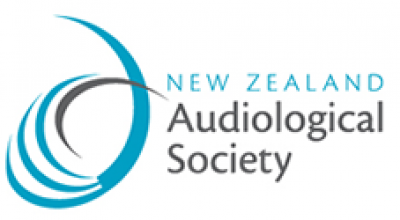Noise and Hearing Protection
Loud sounds can damage your ears and cause hearing loss at any age, so it is good to protect your ears and anyone else who may be at risk – including children.
Our ears do not necessarily feel pain when they are being damaged, so it is hard to know how likely a sound is to cause harm.
If your hearing is already damaged, then take extra care of it – you need to preserve what you have left.
- Very loud, sudden sounds can cause immediate injury, e.g. gun shots, dropping a heavy, hard object onto a hard surface
Some other sounds can also cause harm, although it may take time. In this case the injury results from overworking the ears.
- Sound that is loud enough that you have to shout to be heard will cause damage over a few hours, e.g. loud music, lawnmower, power tools,
- Sounds that are around the level of normal conversation or less are safe, e.g. washing machines, dishwasher, vacuum cleaners,
- Some things can be safe or dangerous depending on how you use them, e.g. riding in a car is normally safe, but if the motor is revving really high it can get dangerously loud.
Make Listening Safe
Loud sounds at work and non-work activities can damage your hearing. To make listening safe.
- Avoid listening to loud music on your phone for too long. The 80/90 rule is that you are OK to listen at 80% volume for 90 minutes per day.
- Be extra careful when listening to music in noisy places (e.g. on public transport) because people often turn up the volume too high to overcome the noise. If that is where you listen, then noise-cancelling earbuds/earphones might be for you.
- Use hearing protection like earplugs or earmuffs
- Limit time spent in noisy activities
- Check decibel ratings on power tools and other equipment
- Use smartphone apps to monitor sound levels
- Get regular hearing checks
- If you have persistent ringing in your ears, get it checked by an Audiologist
The louder you listen, the shorter the time available for listening safely. By turning the volume down, you can listen for longer without harming your hearing. Gamers are at risk of developing hearing loss because of how long and how loud they typically game for.
Hearing Protection
Keep yourself and others away from loud sounds. If you cannot, then make sure you choose the right kind of earmuffs or earplugs for them.
- Earmuffs work by their cushions sealing against the sides of a person’s head, blocking out the sound. Sound can get through even a small gap, so it is important to choose well-fitting earmuffs and to check regularly to make sure the cushions are not cracked. Children’s and babies’ earmuffs are available that will fit smaller heads.
- Earplugs work by fitting inside the ear canal and sealing against the sides of it. Adult sized earplugs come in different sizes and it is good to find a set that works for you. In children, try to find smaller earplugs that fit, and be careful because if they are too large, they may be uncomfortable or leave gaps that sound can get through.
If you are caught without earplugs or earmuffs, you can use your finger instead. Press the little triangular flap of skin over the opening of your ear so it seals your ear canal, or if that doesn’t work, place your fingertip tightly over the opening and it will reduce the sound.
If you (or your child) are a musician and play or practise regularly, use hearing protection. Most instruments are loud enough to cause harm over time and some, like drums or amplified electric instruments, are extra loud. Musician earplugs are available and lower the sound levels without causing distortion so that you can still hear the music properly, just more quietly. Some musician plugs are quite inexpensive, and they still work well. If you are a serious musician, consider investing in custom made music plugs which fit your unique ear shape, with no gaps and the correct attenuation for your sound exposure.
If you want to know the sound levels, you can download sound level meter apps for your phone that give you a rough estimate of the sound levels.
Set them to A-weighted decibels (dBA). This means that sounds we cannot hear are filtered out of the measurement. If you do not choose that option, you will measure a lot of irrelevant sound that cannot cause harm and it will appear as though things are louder than they really are.
Hold your phone so that the microphone is about the same distance from the sound source as the person’s ears would normally be. Don’t forget that the microphone is at the bottom of your phone, where you normally speak into it.
Do not use your phone to try to measure sudden sounds (e.g. gunshots) because they are too sudden for it to be able to give an accurate reading.
If sounds are 70 dBA or less, they will not cause injury to human ears.
If sounds are more than 70 dBA, they may cause harm over time.
Sounds over 85 dBA are deemed dangerous in the laws about health and safety at work. If a person is working in sound levels this high for eight hours or more, their employer is required to protect their hearing.
For more information, visit:
- World Health Organisation - Making listening safe (who.int)
- New Zealand Law regarding Noise - The law | WorkSafe

